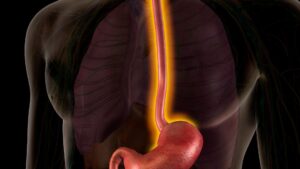30+ years in GI/oncology surgery, 20,000+ successful cases, North India's leading expert.


Esophageal surgery is a critical branch of thoracic surgery dedicated to treating diseases of the esophagus. Our comprehensive esophageal surgery program is designed to address a wide range of esophageal conditions, including esophageal cancer, Barrett’s esophagus, gastroesophageal reflux disease (GERD), and achalasia. Utilizing the latest surgical techniques and a multidisciplinary approach, we offer patients personalized and effective treatment options.
The esophagus plays a vital role in the digestive system, transporting food from the mouth to the stomach. Diseases of the esophagus can significantly impact quality of life and may require surgical intervention for effective treatment. Our team specializes in diagnosing and treating various esophageal conditions, ensuring that patients receive the care they need for a return to health.
Esophageal cancer is a primary focus of our surgical program. Treatment often involves esophagectomy, the removal of all or part of the esophagus, and reconstruction to restore digestive function. Our surgeons are skilled in both open and minimally invasive esophagectomy techniques, including laparoscopic and robotic-assisted surgery, aimed at reducing recovery time and improving outcomes.
For patients with severe GERD or Barrett’s esophagus, where there’s a risk of developing cancer, surgical intervention may be recommended. Procedures like Nissen fundoplication or the LINX device placement help strengthen the esophageal sphincter, preventing acid reflux. Our approach is tailored to each patient, considering the best possible outcomes and quality of life post-surgery.
Achalasia, a rare disorder that affects the esophagus’s ability to move food toward the stomach, can be effectively treated with surgical interventions such as Heller myotomy. This procedure relieves symptoms by cutting the muscle at the esophagus’s lower end, allowing food to pass more easily into the stomach. Minimally invasive approaches to this surgery offer patients quicker recovery times and less postoperative discomfort.
Our esophageal surgery program is supported by a multidisciplinary team of specialists, including gastroenterologists, oncologists, radiologists, pathologists, and dietitians. This collaborative approach ensures comprehensive care, from accurate diagnosis and personalized treatment plans to postoperative recovery and nutritional support.
We are dedicated to providing the highest standard of care, focusing on patient safety, effective treatments, and compassionate support. Recovery and rehabilitation are integral parts of our program, with services designed to help patients regain their strength and adjust to lifestyle changes post-surgery. Our team remains committed to supporting patients and their families throughout the treatment and recovery process.
As a leading center for esophageal surgery, we are committed to advancing the field through ongoing research and innovation. Our surgeons and researchers participate in clinical trials to explore new therapies and improve surgical techniques, contributing to the development of more effective and less invasive treatment options for esophageal diseases.
Our esophageal surgery program offers expert care for patients facing esophageal diseases, utilizing the latest surgical techniques and a multidisciplinary approach to ensure the best possible outcomes. Whether addressing esophageal cancer, GERD, Barrett’s esophagus, or achalasia, our team is dedicated to providing personalized treatment plans and comprehensive support to help patients return to health and improve their quality of life.

30+ years in GI/oncology surgery, 20,000+ successful cases, North India's leading expert.
